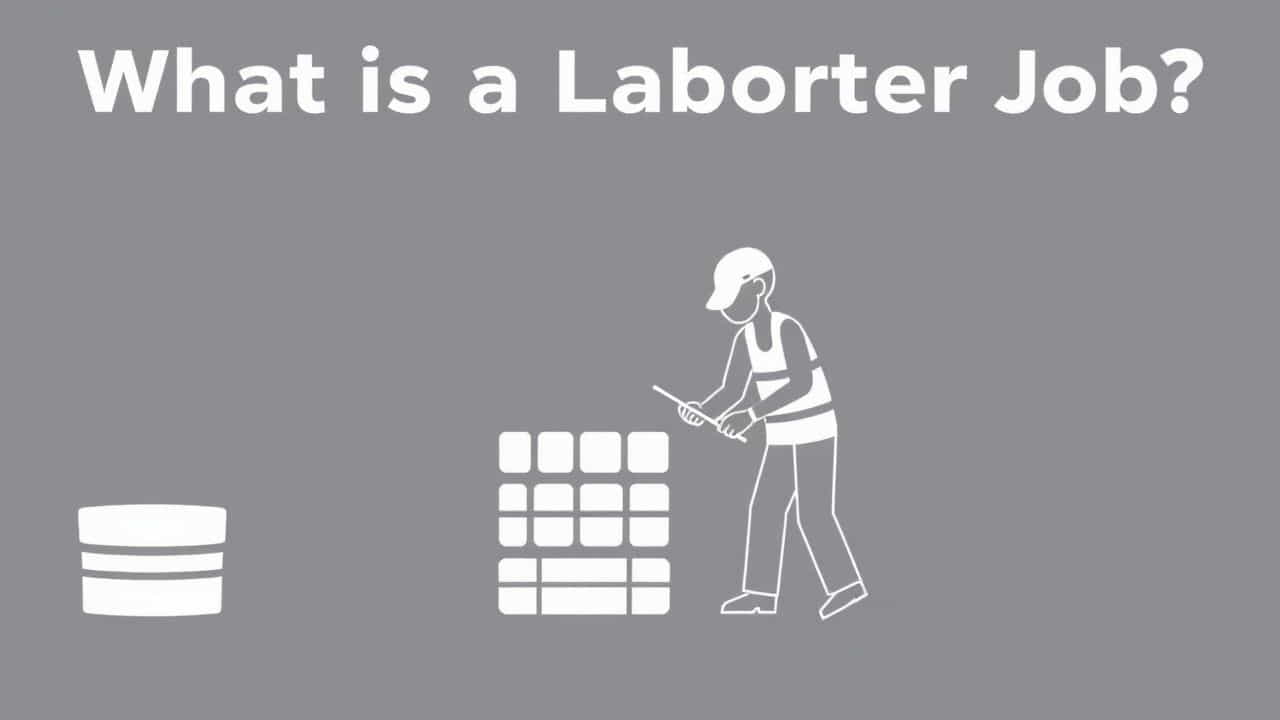A laborer job is a physically demanding role that involves manual work across various industries, such as construction, manufacturing, agriculture, and warehousing. Laborers are essential workers who help build infrastructure, operate machinery, transport materials, and assist skilled tradespeople in completing projects efficiently.
This topic provides an in-depth look at what a laborer job entails, including the responsibilities, skills, qualifications, salary expectations, and career opportunities available in this field.
1. What Does a Laborer Do?
A laborer is responsible for performing physical tasks that support the operation of businesses, construction sites, or industrial facilities. While the specific duties vary by industry, laborers generally work on site preparation, equipment handling, material transportation, and general maintenance.
1.1 Common Responsibilities of a Laborer
Laborers perform a variety of tasks depending on their work environment. Common duties include:
-
Lifting, carrying, and moving materials such as bricks, wood, cement, and tools.
-
Operating basic machinery and hand tools, including drills, saws, and hammers.
-
Assisting skilled workers like carpenters, plumbers, electricians, and masons.
-
Digging, excavating, and preparing job sites for construction projects.
-
Loading and unloading trucks in warehouses and shipping areas.
-
Cleaning and maintaining work areas to ensure safety and efficiency.
2. Industries That Employ Laborers
Laborers are employed in many industries that require physical labor and manual skills. Some of the most common sectors include:
2.1 Construction Industry
The construction sector is one of the largest employers of laborers. Construction laborers assist in:
-
Building homes, roads, bridges, and commercial structures.
-
Mixing and pouring concrete.
-
Installing scaffolding and temporary supports.
2.2 Manufacturing and Factory Work
Laborers in manufacturing and factories help with:
-
Operating machinery and assembly lines.
-
Sorting, packaging, and quality control.
-
Maintaining production areas and handling raw materials.
2.3 Warehouse and Logistics
Laborers in warehouses and distribution centers are responsible for:
-
Loading and unloading shipments.
-
Managing inventory and stock organization.
-
Operating forklifts and other warehouse equipment.
2.4 Agriculture and Farming
Agricultural laborers work on farms, ranches, and plantations, performing duties such as:
-
Planting, harvesting, and processing crops.
-
Feeding and caring for livestock.
-
Operating tractors and irrigation systems.
2.5 Landscaping and Grounds Maintenance
Laborers in landscaping and groundskeeping perform:
-
Lawn mowing, tree trimming, and gardening.
-
Installing irrigation systems.
-
Laying sod, planting flowers, and maintaining parks.
3. Skills and Qualifications Needed for a Laborer Job
While formal education is not always required, certain skills and abilities make a laborer more effective in their role.
3.1 Physical Strength and Stamina
Laborers must be physically fit, as the job involves:
-
Lifting heavy materials.
-
Standing, bending, and kneeling for long hours.
-
Performing repetitive tasks without fatigue.
3.2 Basic Knowledge of Tools and Equipment
Understanding how to use hand tools, power tools, and heavy machinery is essential for many laborer positions.
3.3 Ability to Follow Instructions
Laborers work under the supervision of foremen, supervisors, or skilled tradespeople. They must:
-
Follow safety guidelines and workplace rules.
-
Listen carefully and execute tasks as directed.
-
Work well in a team environment.
3.4 Safety Awareness
Since laborers work in potentially hazardous environments, safety is a top priority. Employers often provide workplace safety training to reduce accidents and injuries.
3.5 No Formal Education Required (But Helpful!)
Most laborer jobs do not require a high school diploma, but having one can be beneficial for career advancement. Some employers offer apprenticeships or training programs for laborers who want to specialize in a skilled trade.
4. Salary Expectations for Laborers
The salary for a laborer varies depending on industry, experience, and location. Below is an approximate salary range:
| Experience Level | Annual Salary (UK) | Annual Salary (US) |
|---|---|---|
| Entry-Level | £20,000 – £25,000 | $25,000 – $35,000 |
| Mid-Level | £26,000 – £35,000 | $36,000 – $45,000 |
| Experienced | £36,000+ | $46,000+ |
Salaries can be higher for laborers who gain specialized skills, such as operating heavy machinery or working in hazardous environments.
5. Career Growth and Advancement Opportunities
Although laborer jobs are typically entry-level positions, there are many opportunities for career advancement.
5.1 Becoming a Skilled Tradesperson
Laborers who gain experience and training can move into skilled trades such as:
-
Carpentry
-
Plumbing
-
Welding
-
Masonry
-
Electrician work
These roles offer higher salaries and job stability.
5.2 Advancing to a Supervisory Role
Experienced laborers can become:
-
Site supervisors
-
Foremen
-
Project managers
These roles involve overseeing teams, managing schedules, and ensuring safety compliance.
5.3 Gaining Certifications for Higher Pay
Certain certifications can help laborers increase their earning potential, such as:
-
OSHA Safety Certification (for construction workers in the U.S.).
-
Forklift Operator Certification (for warehouse jobs).
-
First Aid and CPR Training (useful across industries).
6. Pros and Cons of a Laborer Job
6.1 Pros of Being a Laborer
✅ No formal education required – Easy to enter the job market.
✅ Plenty of job opportunities across different industries.
✅ Physical activity – Great for those who enjoy hands-on work.
✅ Potential for career growth – Can lead to specialized or higher-paying roles.
6.2 Cons of Being a Laborer
❌ Physically demanding – Requires strength and endurance.
❌ Risk of injury – Working with heavy machinery and hazardous materials.
❌ Weather-dependent – Outdoor jobs can be affected by extreme conditions.
A laborer job is an essential and rewarding profession for those who enjoy hands-on work, physical activity, and practical skills. Although it may start as an entry-level position, it offers excellent opportunities for career growth, skill development, and higher wages over time.
For individuals seeking a stable and in-demand career path, becoming a laborer is a great starting point that can lead to specialized trades, supervisory roles, or entrepreneurial opportunities in the future.
